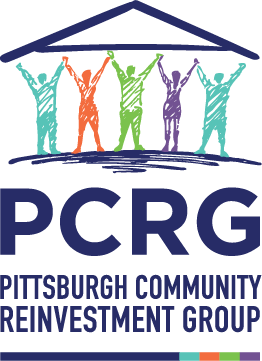OVERVIEW
The Neighborhood Assistance Program, or NAP, is a vital tax credit initiative designed to provide enduring support for locally-based revitalization organizations operating in low-income neighborhoods. This program serves as a catalyst for sustainable community development by leveraging additional resources and fostering collaboration among various stakeholders. Through NAP, community collaborations and public-private partnerships amplify the impact of revitalization efforts.
One of NAP's primary objectives is to bolster essential community institutions such as food banks and libraries, ensuring their continued operation and accessibility to residents. The way the program is funded ensures corporate leadership is fully engaged in local economic revitalization efforts. Corporate sponsors contribute directly to local nonprofit organizations, with dedicated leadership often deployed pro-bono within NAP neighborhoods.
Created in 1971, the NAP tax credit was set at $18 million. Following PCRG and member organizations’ robust advocacy push, the Pennsylvania Legislature recently increased the NAP cap rom $36 to $72 million in tax credit support in the 2023-2024 legislative session.
NAP expansion explained
State legislators, and Gov. Josh Shapiro, recently passed a budget that includes more money for the NAP. It will:
Increase the NAP tax credit support from $36 to $72 million.
Raise the Neighborhood Partnership Program, or NPP, to 95%, the Special Priorities Program, or SPP, to 90%, NAP to 65% and the Charitable Food Program, or CFP, to 65%.
Double the corporate contribution limit to $2.5 million.
The program has a proven track record of building sustainable tax bases and increasing tax revenues for both local municipalities and the Commonwealth of Pennsylvania. The tax credit enhances PA and local sales tax revenue, enhances PA and local income tax revenue, and strengthens local real estate property tax revenue in targeted communities. NAP’s success is demonstrated by the growing number of communities seeking to utilize this innovative and effective program.
MEMBER TESTIMONIALS
“The Hill CDC has been able to engage in extensive planning and redevelopment efforts that have resulted in the preservation and creation of new affordable and mixed income housing, business district and entrepreneurial support, as well as cultural programming that enlivens and ensures distinct destinations within our state. Such economic development attracts visitors, new enterprises and residents which strengthens our tax base. It is our belief that an increase will bring additional investment to the neediest parts of our state and ensures that corporations have an opportunity to invest in our neighborhoods in ways that they otherwise would not. NAP is truly a public-private benefit that ensures our tax dollars are maximized towards community revitalization.”
“In Sharpsburg, Millvale, and Etna, three of Allegheny County’s most flood-exposed and economically challenged municipalities, the Neighborhood Partnership Program through the NAP has supported priceless on-the-ground staff capacity, which has enabled local organizations to serve hundreds of local families and individuals. Through this program, we have connected local people to thousands of pounds of free food, paid career training and education opportunities, free home weatherization and repair work, and begun work on a new community center. The NAP has given us the capacity to organize residents and build their capacity, teaching folks how to organize community events and projects, run for office, serve on a local commission or nonprofit board, and otherwise create a positive impact locally. The NAP, like no other program available to PA communities, provides rare funding to support invaluable human capacity in communities that desperately need it. I strongly encourage our state officials to vote to increase the NAP cap so that more communities across the commonwealth can benefit from this critical funding source.”



